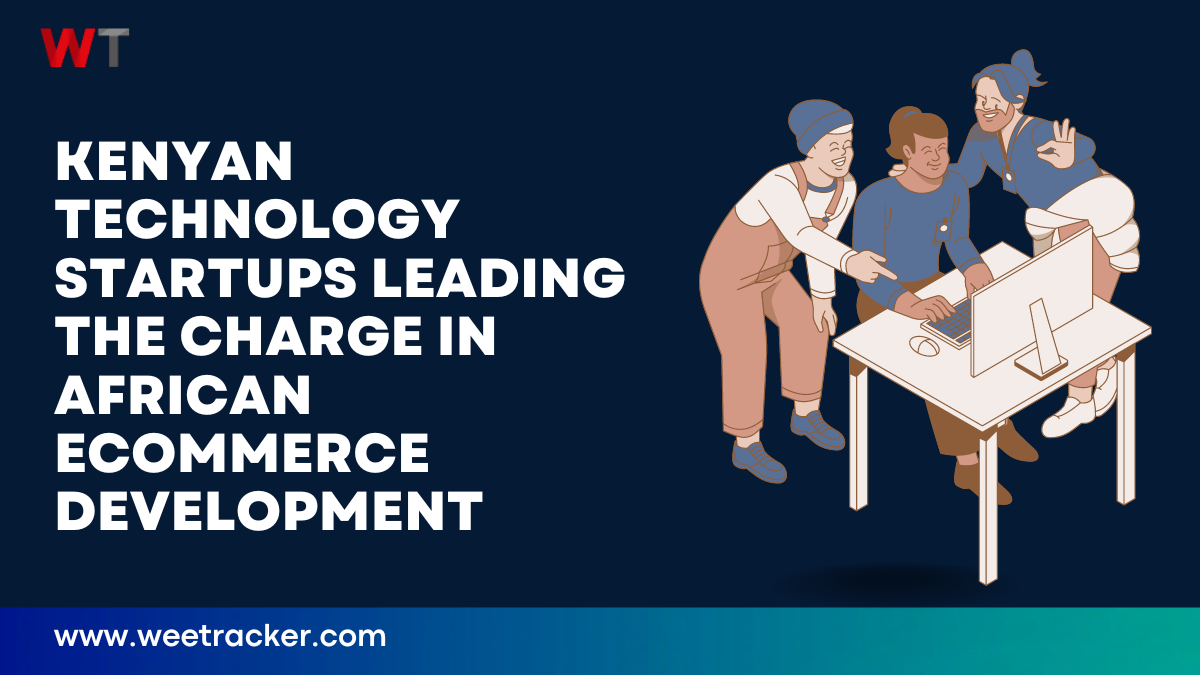The African technology landscape is rapidly evolving, with Kenyan technology startups leading the charge in innovation and entrepreneurial spirit. Simultaneously, the continent’s eCommerce sector is witnessing a remarkable growth surge, driven by dynamic startups across Africa. This blog delves into the key players and trends shaping the tech and eCommerce startup scenes in Kenya and across Africa.
Kenyan Technology Startups: Pioneering Innovation
Kenya has emerged as a powerhouse in the tech world, renowned for its vibrant startup ecosystem. Here are some standout Kenyan technology startups that are making waves:
Safaricom – While not a startup in the traditional sense, Safaricom’s innovations, such as M-Pesa, continue to drive technological advancements in Kenya. M-Pesa revolutionized mobile banking and payment systems, providing financial inclusion to millions of Kenyans.
Andela – Andela connects talented African software developers with global tech companies. By offering remote work opportunities, Andela has helped bridge the gap between African talent and international markets.
Twiga Foods – This startup leverages technology to streamline agricultural supply chains. Twiga Foods connects farmers directly with retailers, reducing inefficiencies and improving market access for smallholder farmers.
Lipa Later – Lipa Later is transforming the way Kenyans handle payments by offering a flexible pay-later solution. This fintech startup allows consumers to make purchases and pay in installments, making high-value items more accessible.
Kopo Kopo – Specializing in digital payment solutions, Kopo Kopo enables businesses to accept mobile payments and manage transactions seamlessly. Their platform is crucial for small and medium-sized enterprises (SMEs) looking to expand their payment options.
African eCommerce Startups: A Growing Market
The eCommerce sector across Africa is burgeoning, with numerous startups making significant strides in reshaping how people shop online. Here are some noteworthy African eCommerce startups:
Jumia – Often dubbed the “Amazon of Africa,” Jumia is one of the largest eCommerce platforms on the continent. It offers a wide range of products, from electronics to fashion, and operates in multiple African countries, including Kenya, Nigeria, and Egypt.
Konga – Based in Nigeria, Konga is a leading eCommerce platform that provides an extensive range of products, including electronics, clothing, and home goods. Konga’s robust logistics network supports its operations across Nigeria.
Takealot – South Africa’s premier online retailer, Takealot, has expanded its offerings to include electronics, books, and household items. The company’s efficient delivery system and diverse product range have made it a go-to destination for online shoppers.
Zando – A prominent player in the South African eCommerce space, Zando specializes in fashion and lifestyle products. The startup’s user-friendly platform and wide selection of brands cater to the evolving preferences of fashion-conscious consumers.
Moringa School – Though primarily an edtech startup, Moringa School is making significant contributions to Africa’s digital economy by equipping young professionals with essential tech skills. The school’s programs prepare students for careers in tech, supporting the growth of the broader eCommerce ecosystem.
Trends and Future Outlook
The convergence of technology and eCommerce in Africa is creating exciting opportunities for innovation and growth. Key trends shaping the future include:
- Increased Mobile Penetration: With mobile devices becoming more accessible, startups are focusing on mobile-first solutions to cater to a growing number of mobile users.
- Fintech Integration: The integration of financial technologies in eCommerce platforms is enhancing payment security and convenience, driving further adoption of online shopping.
- Logistics and Delivery Innovations: Efficient logistics and last-mile delivery solutions are critical for the success of eCommerce startups, especially in regions with infrastructure challenges.
- AI and Data Analytics: Startups are leveraging artificial intelligence and data analytics to personalize user experiences, optimize supply chains, and drive business insights.
Conclusion
Both Kenyan technology startups and African eCommerce ventures are at the forefront of a digital revolution. As they continue to innovate and address local challenges, these startups are not only transforming their respective sectors but also contributing to the broader growth of Africa’s digital economy. The future looks promising for tech and eCommerce in Africa, with continued advancements and opportunities on the horizon.




